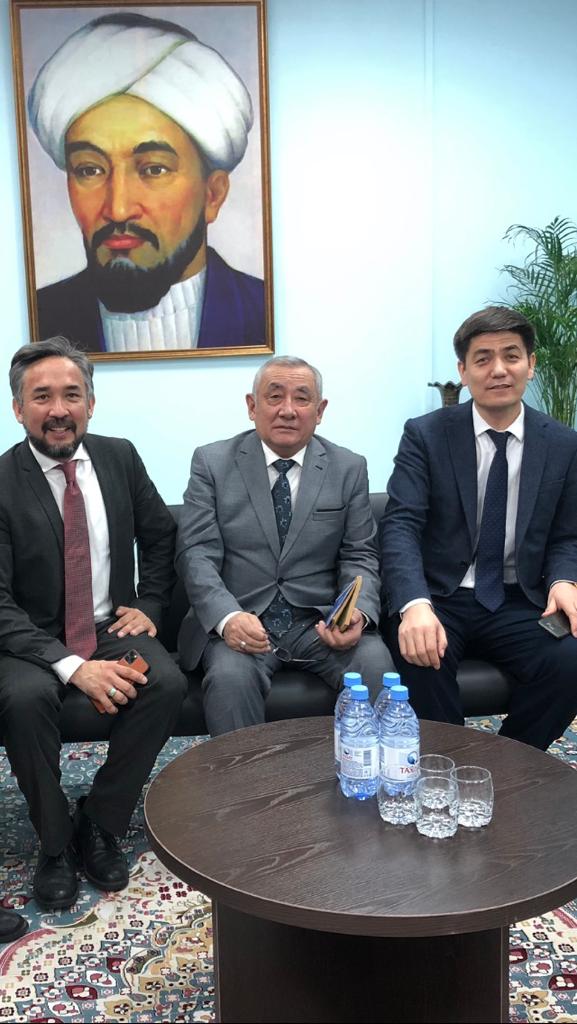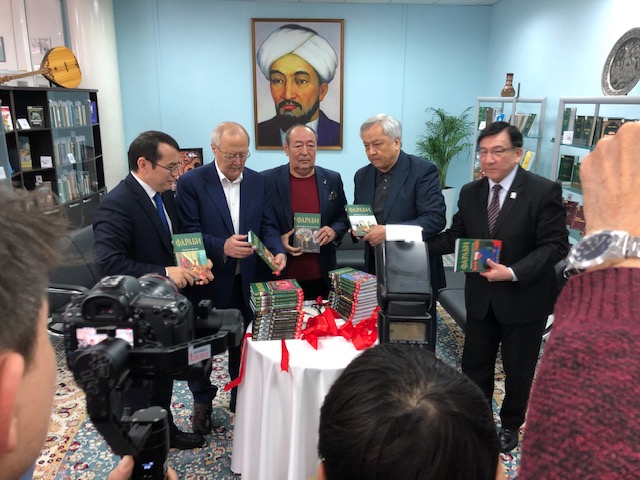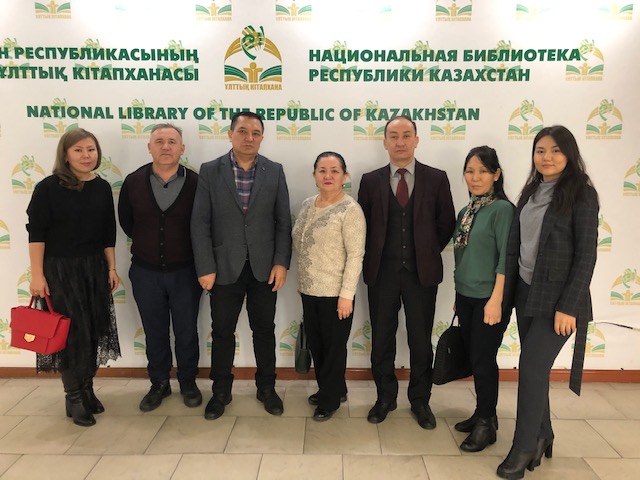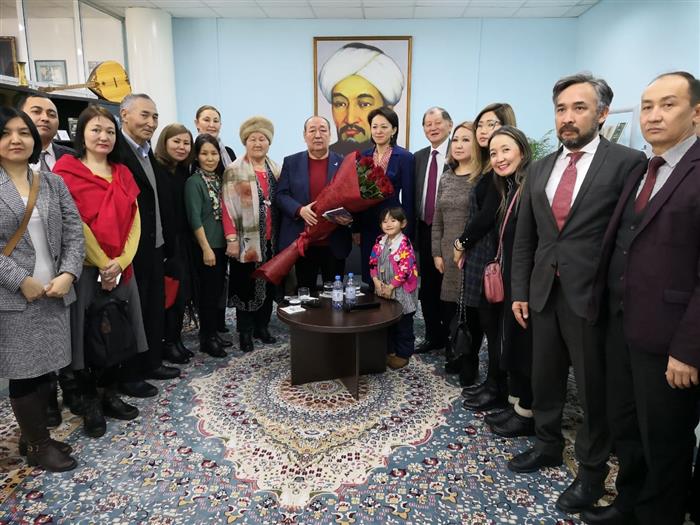The heritage of Al-Farabi
Views: 1877

January 29, 2020 Al-Farabi Kazakh National University, with the support of UNESCO, celebrated the 1150th anniversary of the great son of ancient Otrar, Abu Nasr Al-Farabi, in the country. Preparation for the commemoration of the 1150th anniversary of Abu Nasr al-Farabi was started in 2019, by the Decree of the President of the Republic of Kazakhstan K. Tokayev.
A special state commission has been created, and our scientists are conducting comprehensive research on the search, collection, manuscript, study, and circulation of manuscript heritage stored in the world's archives.
One of such good deeds, the honoring of the encyclopaedist-scientist, was celebrated at the Al-Farabi Research Center, opened at the National Library of the Republic of Kazakhstan. Al-Farabi Kazakh National University together with Abay International Club presented a 15-volume collection of works by Abu Nasr al-Farabi.
Auezov, public figure and cultural scientist opened the meeting. The scientist noted that the first study of Otyrar's legacy in Kazakhstan began in the middle of the last century, with the merits of scholars, researchers, and translators, who have continued to pursue the course of national pharabitual science, founded by a well-known scientist, philanthropist A.Mashanov.
Famous scientist, writer and director of Abay International Club R. Seisenbayev, who led the directing of the multivolume works of the Baba heritage, said, "There are two things to do in this world. One is God, the other is the saints. Al-Farabi is one of those saints. ”He emphasized that the duty of the nation was to impose on the minds of young people that the works of the great scientist were the great heritage of mankind and the iron line of life.
The presentation of the volumes of al-Farabi was presented by the director of the Al-Farabi Center of the Kazakh National University B.Meirbaev, the dean of the Faculty of Oriental Studies Y.Paltore, the head of the department of the Middle East and South Asia P. Suleimenov and other heads and staff of the faculty, teachers and doctoral students, undergraduates and students.











